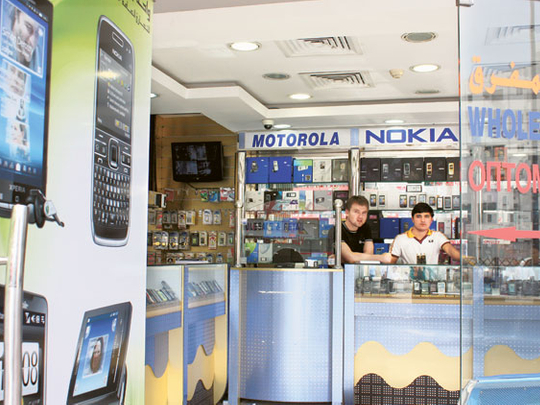
Dubai: The introduction of value-added tax (VAT) and poor job security have taken a toll on first quarter mobile phone shipments into the UAE and Saudi Arabia.
According to the latest numbers from research firm International Data Corporation (IDC), total mobile phone shipments into the UAE declined by 14.7 per cent quarter-on-quarter, and 5.4 per cent in Saudi Arabia quarter-on-quarter, while smartphone shipments into the UAE were down 4.6 per cent.
She added that the true impact of this shift could be seen in the independent retail stores of Deira, the traditional trading and commerce centre of Dubai, where shops that were previously impossible to lease are now sitting vacant.
“Organised mall-based retail chains that focus exclusively on consumer electronics are also struggling. Businesses in Qatar, meanwhile, will continue to suffer from the prevailing political challenges and import embargoes that have already impacted the country’s mobile phone market,” she said.
Total mobile phone shipments into the Gulf Cooperation Council (GCC) totalled 5.9 million units in the first quarter of this year, down 9.9 per cent compared to the previous quarter.
Looking at smartphones in isolation, shipments to Saudi Arabia fell for the fourth consecutive quarter during the period, contracting 7.5 per cent compared to the previous quarter.
Kuwait saw a 3.9 per cent quarterly decline in smartphone shipments while Bahrain and Oman bucked the regional trend to post respective growth rates of 3.4 per cent and 6 per cent for the quarter.
“A significant portion of the local population is expected to leave the country due to the introduction of this levy, with the exodus expected to run into the millions. The full impact remains to be felt, however, as many expatriates are waiting for the school year to end before leaving,” he said.
The report states that Nokia continues to dominate the vendor landscape for feature phones, garnering 87 per cent share of the overall GCC market in first quarter.
On the smartphone front, Samsung maintained its lead with 35 per cent share of the region’s shipments while Apple and Huawei ranked second and third with respective shares of 24 per cent and 14 per cent.
Cheaper second- and third-tier smartphone brands are benefiting from the depressed market sentiment, with global brands such as Oppo, Xiaomi and Tecno, as well as local brands like Lava and Ibrit, all making slow and steady progress.
Looking ahead, IDC expects overall mobile phone shipments to the GCC to decline 6.3 per cent year on year in 2018.
Given the prevailing market challenges, it will take some time for the market to adjust and for consumer behaviour to stabilise.












